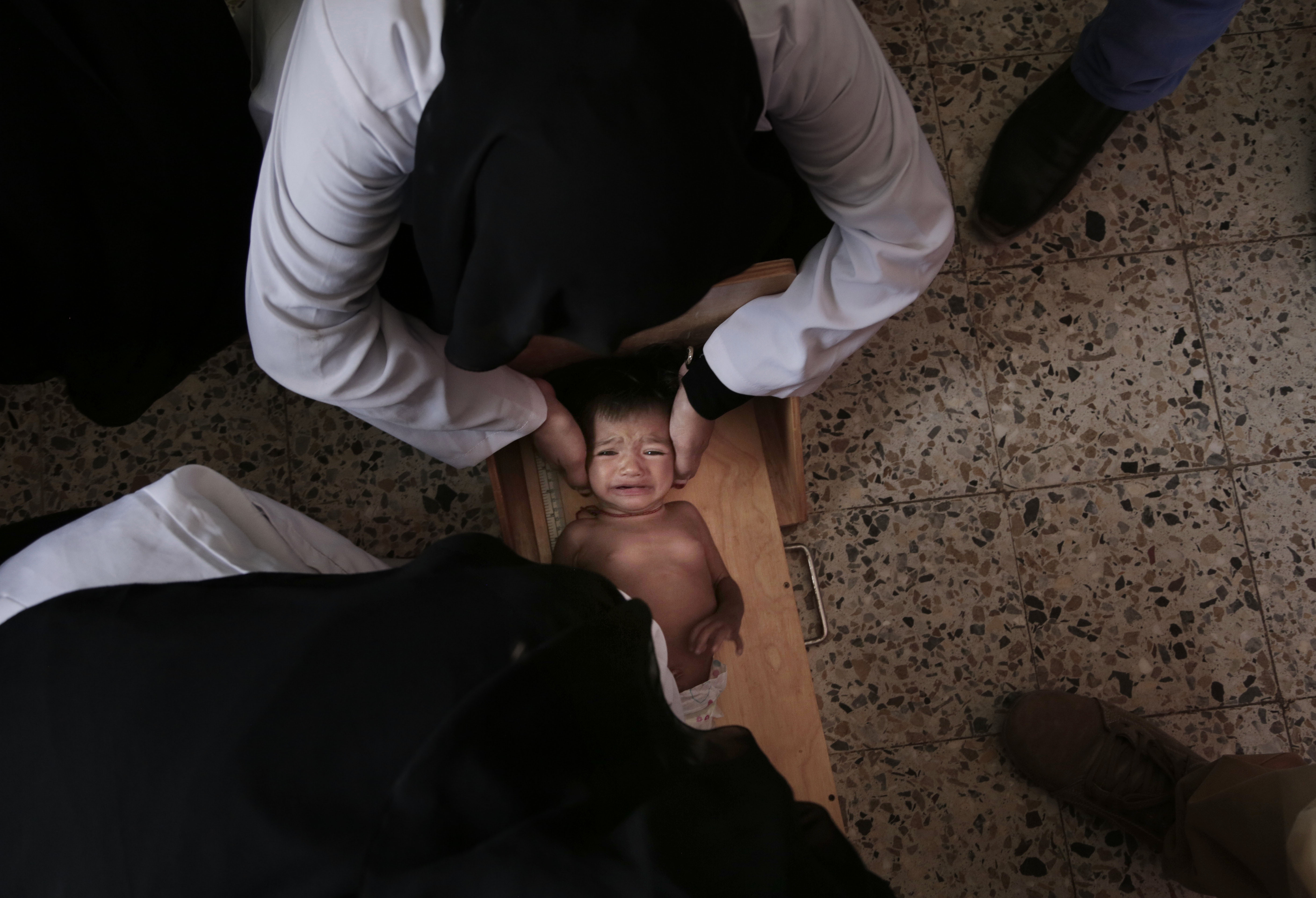
Transcript:
STEVE INSKEEP, HOST:
Saudi Arabia and its allies face worldwide criticism for the human suffering caused by their intervention in a civil war in Yemen. Some new reporting highlights abuses by the other side, Houthis. A rebel group captured the capital years ago, and Maggie Michael of the Associated Press is reporting on Houthi detention centers. She's back from Yemen at her home base in Cairo. Welcome to the program.
MAGGIE MICHAEL: Thank you.
INSKEEP: What kinds of people are the Houthis detaining?
MICHAEL: Houthis detain anyone and everyone suspected to be an opponent - so from journalists to rival politicians to tribesmen to normal youth who just post criticism on social media - like, even a WhatsApp group.
INSKEEP: OK. So it's about maintaining political control, anybody who is perceived as an opponent or potential opponent. How are people being treated in those detention centers?
MICHAEL: The detention centers are rife with abuse, torture of all forms and kinds. We have met many of them in Yemen. Some told us the stories about two years in prison where they have been hung from their chains for many hours. Some actually came out...
INSKEEP: You mean, like, hung - people are being hung from the ceiling by chains. Is that what you just said?
MICHAEL: Yes, from their handcuffs to the ceiling, where they can't touch the ground. Sometimes, they pour acid over their bodies. Sometimes, they pull their nails. And they're all sorts of torture. And we have seen evidence on the bodies of the victims after they were released in prisoner swap deals.
INSKEEP: I hate to get graphic, but you said, sometimes, they pour acid over the bodies. You saw people to whom that had happened?
MICHAEL: Yes, and there's a case where a pharmacist disappeared for one year and then surfaced and was found covered by burns over his body. And the man lost his memory. And the only evidence is what the family is saying - that they saw Houthis dropping his body on the ground. And he lost the memory - that he cannot tell what exactly happened to him. But this is one of the stories told all the time in Yemen. And we met him in Yemen.
INSKEEP: Was it hard to get people to talk to you about these abuses in Houthi-controlled areas?
MICHAEL: In Houthi-controlled areas, it's very hard for them to speak. And when they speak, they speak on condition of anonymity. And they don't show any pictures, or we cannot send them. But in the non-Houthi-controlled areas, we met victims who fled. And they are staying in displaced camps right now. And they were open to speak and show us evidence of what happened to them during their detention.
INSKEEP: Did you have any way to reach Houthi officials to ask them whether they condone these kinds of abuses?
MICHAEL: We had - we tried to reach them. They're very hard to reach. They're very hard to comment. And we had, like, a typical denial by the Ministry of Human Rights run by the Houthis. They say there is no torture. And whenever there is torture, we - it's individual case. But we also have an exclusive video that we posted showing an investigative team from the Houthis themselves, where they are acknowledging torture.
INSKEEP: OK. Thanks very much for your reporting. Really appreciate it.
MICHAEL: Thank you.
INSKEEP: Maggie Michael is a reporter from The Associated Press, recently back from Yemen.





